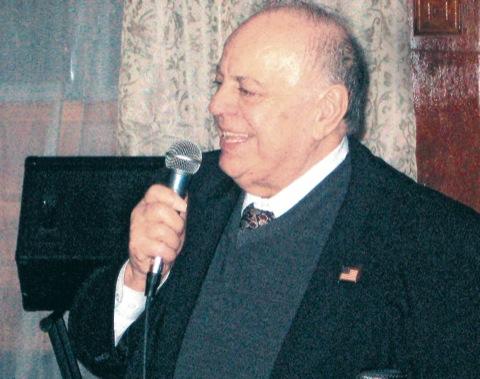By Howard Koplowitz
Federal prosecutors have finally publicly acknowledged former state Assemblyman Brian McLaughlin’s cooperation in the case against former Assemblyman Anthony Seminerio.
The U.S. attorney’s office in Manhattan wrote to U.S. District Judge Richard Sullivan, who sentenced McLaughlin to 10 years in prison on racketeering charges in May, to explain why it was seeking leniency for McLaughlin and cited his “substantial assistance” in its Seminerio investigation.
When McLaughlin, a Flushing Democrat, assisted the government, he had already been indicted on racketeering charges.
When Seminerio, a Richmond Hill Democrat, was charged with honest services mail fraud in September, the criminal complaint mentioned an unnamed cooperating witness arranged for an undercover FBI agent posing as a businessman to meet with Seminerio.
Sources earlier had told TimesLedger Newspapers McLaughlin was the cooperating witness, but the U.S. attorney’s office declined to confirm it at the time.
In its letter to Sullivan dated May 18 and publicly released by the U.S. attorney’s office June 9, prosecutors said they started asking McLaughlin about Seminerio after their investigation into McLaughlin yielded a recorded conversation between the two legislators about “issues regarding expenditures of campaign funds.”
“When the subject of Seminerio arose during his meetings with the government, McLaughlin related, in part, his impression that Seminerio, through a consulting business he had formed, appeared to be using his state Assembly office as a kind of private business,” the letter said.
McLaughlin told federal investigators that “he had no direct involvement or first-hand knowledge of Seminerio’s consulting activities” but that “it appeared to him that Seminerio was receiving consulting payments for the type of work that an assemblyman would normally undertake in carrying out his responsibilities as an elected official.”
Prosecutors noted McLaughlin and Seminerio were colleagues in the Assembly for 15 years and that the relationship would prove useful in their investigation of Seminerio.
In cooperation with the government, McLaughlin met with Seminerio in the fall of 2007 “under the guise of seeking advice on establishing his own consulting company,” the letter said.
McLaughlin recorded the conversation, prosecutors said, in which Seminerio told McLaughlin “the origins and details of the fraudulent scheme” that led to charges against Seminerio.
The government also said McLaughlin arranged a Jan. 18, 2008, meeting between Seminerio and an undercover FBI agent posing as a venture capitalist. The undercover agent eventually became a client of Seminerio’s fraudulent consulting business, prosecutors said.
Reach reporter Howard Koplowitz by e-mail at hkoplowitz@cnglocal.com or by phone at 718-229-0300, Ext. 173.



































